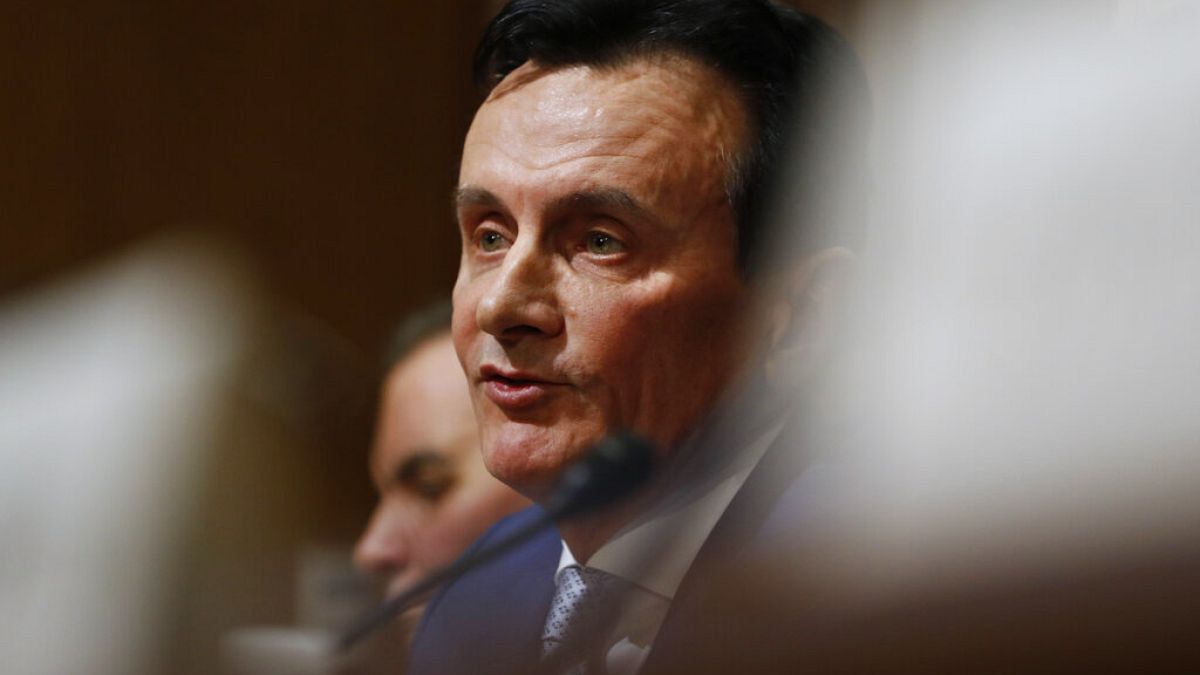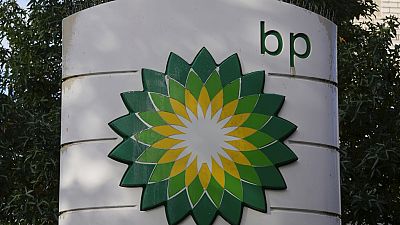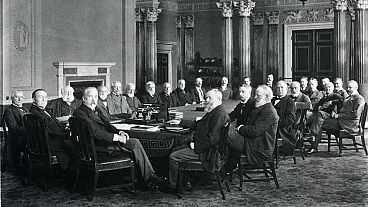More than 60% of shareholders backed the decision to raise Pascal Soriot’s pay packet, solidifying his position as the highest earning FTSE 100 boss.
The chief executive of pharmaceutical giant AstraZeneca could earn up to £18.7 million (€21.9 million) this year after shareholders approved a motion to increase his pay.
Of the shareholders who voted on Thursday, around 64% were in favour of the decision, and 36% were against.
Pascal Soriot’s base salary sits at around £1.5 million (€1.76), but he is now able to earn annual incentive payments worth up to 850% of this rate if he hits long-term targets.
This compares to his previous incentive allowance of 650%.
Since Thursday's vote, Soriot’s annual bonus could also increase to a maximum of 300% of his base salary, compared with 250% previously.
The French-born CEO is already the highest earning boss on the UK’s FTSE 100 exchange, taking home £16.9 million (€19.77) last year.
Rajiv Jain, one of AstraZeneca’s top shareholders and chief investment officer of GQG Partners, nonetheless told the FT this week that Soriot was "massively underpaid".
This claim echoes a statement made by the CEO himself, albeit in 2018, when he was earning around £9.5 million.
"The truth is I’m the lowest-paid CEO in the whole industry … You know, it is annoying to some extent," Soriot told the Sunday Times.
Before Thursday’s vote, AstraZeneca shareholders had been urged by advisor Glass Lewis to reject Soriot’s pay increase, branding it "excessive".
The drug company nonetheless faced less backlash than it experienced in 2021, when almost 40% of shareholders rejected the CEO’s salary.
Supporters of Soriot argue that a high payout is deserved given the high number of company targets achieved over the last decade.
When the Frenchman took over in 2012, AstraZeneca's stock price was flailing due to a loss of patent exclusivity on key drugs and delays in the development of new products.
Since Soriot’s appointment, AstraZeneca's stock has nonetheless risen by more than 270%.
This is partially thanks to greater investment in research and development, notably in core target areas such as cancer, respiratory and cardiovascular diseases.
AstraZeneca has also justified Soriot’s pay rise by pointing to the money earned by heads of competitor firms.
CEO of Eli Lilly & Co., David A. Ricks, earned $26.6 million (€25 million) in 2023, while Johnson & Johnson’s Joaquin Duato earned $21.6 million (€20.31 million).
There are concerns within the pharmaceutical industry that UK companies must keep up with their US rivals in order to attract the best talent.
Also on Thursday, before the vote, AstraZeneca announced plans to raise its annual dividend by 7% for 2024, to a value of $3.10 (€2.92) a share.



